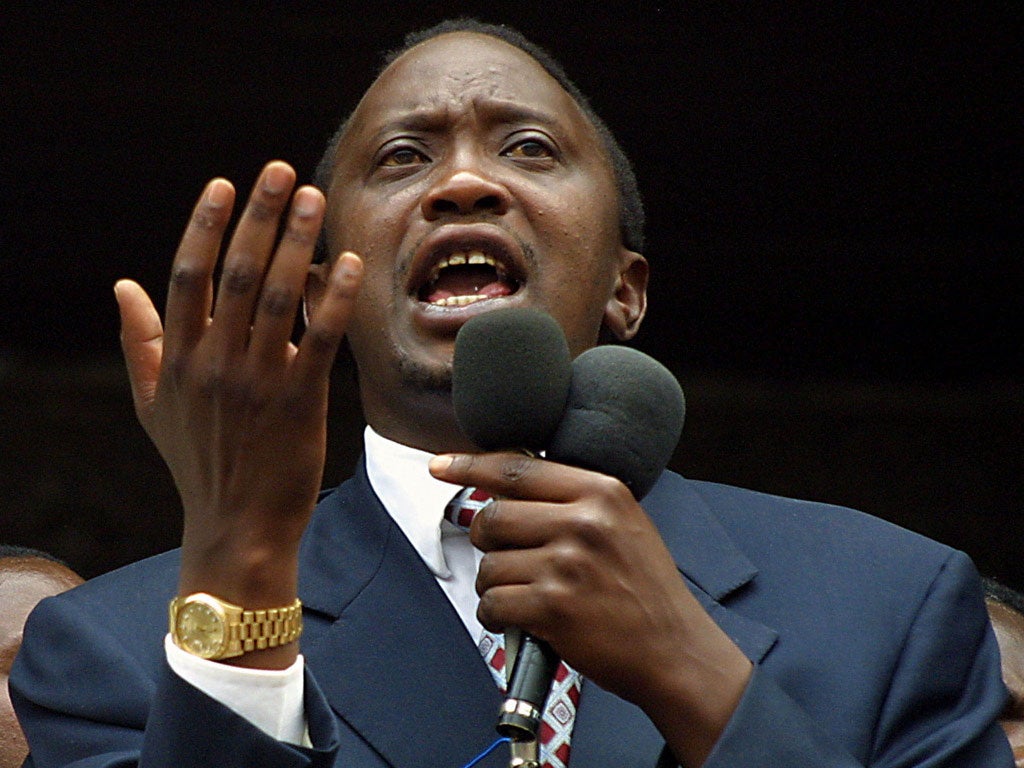The ICC will put Kenyatta on trial - but the court also helped this man into power
The new President positioned his campaign against Western neo-colonialism

Kenya’s elections have passed and – in huge contrast to five years ago – mass violence has been avoided.
Except it isn’t quite that simple. The newly elected President faces trial at the International Criminal Court in July; so too does his Vice President, beginning in May. The only precedent for an incumbent leader being on trial at the ICC comes from Sudan, hardly auspicious company for Kenya to join.
The reaction to Uhuru Kenyatta’s victory suggests the West aren’t too happy about the result. In praising the essential peacefulness of the vote, Western countries have avoided explicitly congratulating Kenyatta. Before the polls, America’s leading African diplomat said, “choices have consequences” – a comment widely interpreted as backing Raila Odinga, Kenyatta’s main opponent.
Now the West faces an impossible situation. They don’t want to applaud a man who stands accused of orchestrating mass violence, but neither can they afford to stand back from a country that provides a base from which to attack Somali terrorists. A middle path, maintaining diplomatic relations while minimising personal contact with Kenyatta, is still unsatisfactory.
Kenyatta, and his Vice President, William Ruto, have said that they will respect the ICC process. But holding office - especially if China is prepared to provide financial support - will create the temptation to do the opposite. And a trial that could last several years could create “government by Skype”.
It is the ICC’s failings that have created these problems. Three years or so ago, there was real support for the ICC in Kenya; bars were named Ocampo after the ICC prosecutor charged with bringing those involved in the horrors of 2007/08 to justice. The ICC had its chance but it failed. It is now more discredited than ever, having succumbed to indecision and obfuscation since. A case such as this would always bring problems but, even with over five years between Kenyan elections, the ICC was unable to even begin the trial.
Instead, an institution designed to ensure international justice has helped two men accused of crimes against humanity to become Kenya’s President and Vice President. The Kenyatta-Ruto campaign positioned themselves as defenders of the country against the Western neo-colonialism embodied by the ICC, and it clearly worked. If – as is probable – they escape conviction by the ICC (only one man has ever been convicted by it, and even that took six years), the message created to accused politicians will be a simple one. Worried about imprisonment? Just become head of state and relax.
With a repeat of five years ago thankfully avoided (although defeated candidate Raila Odinga is bringing forward a case of fraud to the Kenyan courts), the world’s media will lose interest. The truth is that this story is still running. And for the ICC, there should be some very uncomfortable questions.
Join our commenting forum
Join thought-provoking conversations, follow other Independent readers and see their replies
Comments
Bookmark popover
Removed from bookmarks